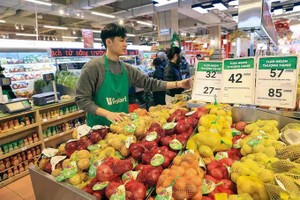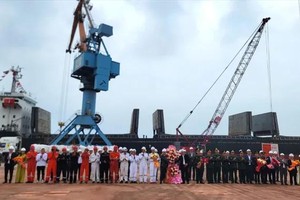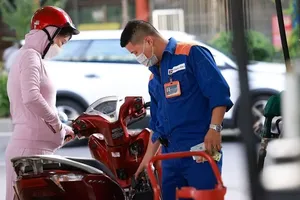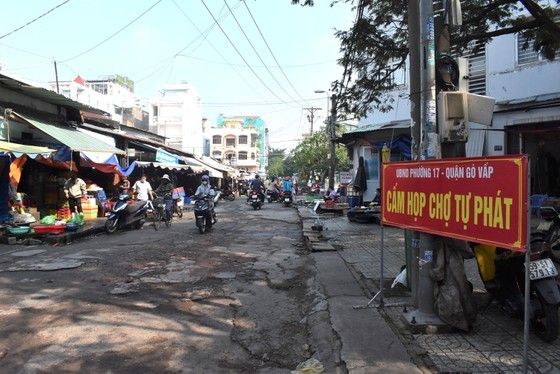
Before the fourth outbreak of Covid-19 in HCMC, Pham Thi Hien, who lives in District 7, is a street vendor on Bui Van Ba Street. Due to the unexpected outbreak, she had to temporarily stay at home and wait for instruction from the localities. When District 7 announced in September that it basically put the outbreak under control, she hoped that she could resume her business.
“I contact the People’s Committee of my ward every few days, yet all I have been told is to wait. Other services have already restarted, but I am still now allowed to go back to my business. I am in a financial crisis here, and I hope the city would do something to help us earn our living”, shared Ms. Hien.
In a working session with Chairman of HCMC People’s Committee Phan Van Mai, District 7 proposed to pilot a specific monitored area, with proper Covid-19 prevention and control measures, for local street vendors. This solution is able to not only maintain urban aesthetics, public security, food sanitation, pandemic control but also allow the targeted group to earn their living.
Similarly, Go Van District is now trying to organize unregistered trading places to more effectively handle street vending and illegal road, sidewalk encroachment. The localities here have encouraged business people to register for their commercial activities. Last month alone, there were over 1,500 people approved a business permit. Any individuals purposely encroach sidewalks and roads for their trading activities are severely punished.
The district also introduces a detailed plan to clear many streets like Le Thi Hong, Trung Nu Vuong and the areas around major markets like Go Vap, An Nhon, Xom Moi, Hanh Thong Tay from such illegal street vending. The next step is to renovate sidewalks here and construct proper stalls for those in need to sell goods legally.
Following the same procedure, District 6 is preparing a plan to arrange street food vendors into specific areas for more stable commercial activities and ease of pandemic control. The two preferable solutions of the district are to save certain streets for this business group and to cooperate with its business association to organize a night food market in front of Binh Tay Market for street vendors free of registration charge.
to better understand the needs of its residents, District 6 has conducted surveys at boarding houses, neighborhoods of freelance workers before planning areas for street vending so that people feel at ease with their buying and selling activities while the localities can still monitor them.
Deputy Head of the HCMC Traffic Safety Committee Nguyen Ngoc Tuong commented that the People’s Committee of each district and Thu Duc City is in charge of the best arrangements for street vending, sidewalk usages in their areas.
“The pilot of gathered street vending activities in certain districts has basically satisfied the public demands. The localities should pay attention more to traffic order, urban security, and sanitation in these areas. Hence, there is a need to evaluate the piloting plan to adjust if necessary”, said Mr. Tuong.
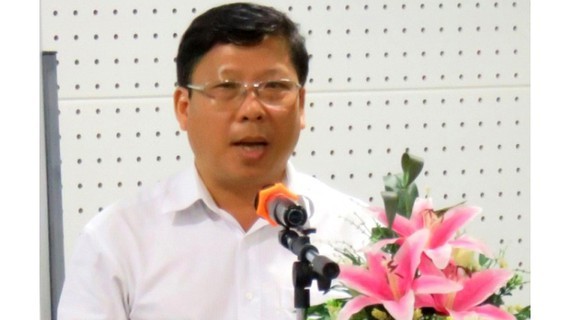
He informed that in HCMC, workers in the informal sector account for 40-50 percent of the whole city workforce. When the fourth outbreak is quite under control, many have left HCMC to return to their hometowns, which significantly reduces the quantity of street vendors in the upcoming time.
Entering the new normal stage, the city has a good chance to re-organize its street vending economy to ensure Covid-19 safety, allow people to earn their living legally, and maintain the vibrancy of urban streets, public security.
Discussing the possible impacts of campaigns to restore order to sidewalks on freelance laborers, many of whom are poor and vulnerable, Dr. Sang said that HCMC has already carried out three rounds of financial support delivery to poor people in the city.
However, a better long-term solution must be to offer a stable way for informal laborers to earn their living. A sound plan for specialized trading sites for street vendors under the close monitoring of the localities is necessary in this sensitive time of Covid-19 pandemic. Along with that is logical space planning for urban streets which includes proper street economy activities.


